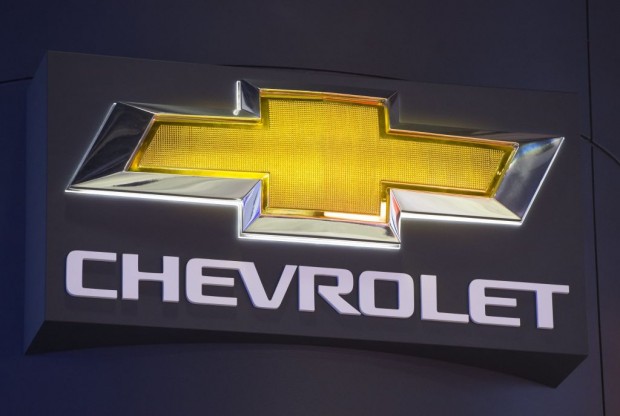It is the end of an era for two of Chevrolet's popular engines, with the automaker deciding to discontinue the production of the LS7 and its wet-sump version, the LS427/570.
(Photo : SAUL LOEB/AFP via Getty Images)
It is the end of an era for two of Chevrolet's popular engines, with the automaker deciding to discontinue the production of the LS7 and its wet-sump version, the LS427/570. Reddit user bissellpowerforce was the one who first shared the discontinuation of the small-block V8s.
That sad news has since been confirmed by a Chevy spokesperson, telling Road & Track that the company plans to fulfill all current orders until the LS7 V8 crate engines are gone. Per Chevrolet's official website, the LS7 V8 page has a message that states, "Discontinued Product. Contact dealer for availability."
General Motors created the LS7 as part of its fourth-generation V8 small block series. It can displace 7.0 liters with a maximum stock output of 570 horsepower and 540 lb-ft of twist, thanks to its classic 427 cubic-inch design. The LS7 has ultra-light titanium connecting rods, coated pistons, a forged steel crankshaft, and 4.125-inch cylinder bores.
Chevy used LS7 for Camaro Z/28 and C6 Corvette Z06
Before the LS7 was handed crate engine duty exclusively, Chevrolet used it for two of its great high-performance vehicles, namely the fifth-generation Camaro Z/28 and the C6 Corvette Z06. The LS7 generated power by utilizing a cylinder block casting with pressed-in steel cylinder liners.
Once the crane engine era went into full effect for the LS7, the carmaker produced the Chevrolet Performance LS7 7.0L crate engine package, providing car owners with a dry-sump oil pan and giving them the responsibility for the oil tank and external oil lines.
The automaker also produced the LS427/570, which is the engine's wet-sump sibling. The name stands for its displacement and horsepower, respectively. The LS427/570 has a complete wet-sump oiling system and an upgraded camshaft.
Connect & Cruise Powertrain Systems helped make LS7 an attractive option for buyers as it made installation easier in older vehicles, offering factory-matched transmission and engine combinations with wire harnesses and specifically calibrated controllers.
Related Article: Electric Car Sales Surge in 2021: COVID-19 Pandemic Accelerates EV Revolution
GM's electrification plans hands LS7 V8 death blow
The LS7's demise was not a complete surprise, considering GM's desire to be an all-electric automaker in the near future. GM wants its entire lineup to be fully electrified by 2035, making crate V8 engines a not so important product for them anymore.
According to a message posted on the official website, the most recent rebates and offers for the LS7 expired on October 31, 2021, meaning that sales and production of those V8s ceased just before the end of last year. While that may be sad news for builders of project cars, GM still has a wide selection of crate engines for them to choose from, with the automaker still offering the LT5, LT4, LT1, and LS9.
Just this past October, Chevrolet unveiled the ZZ632, a 10.4-liter, naturally aspirated V8 crate motor that can generate more than 1,000 horsepower. Electrification may be the future, but there is still room for internal combustion engines right now in the auto market.
READ MORE ON AWN:
Mini Recharged Provides Owners of Classic Mini Option To Turn Cars Into Electric Vehicles
Man Uses 4.3 Liters Lexus V8 Engine, Turbocharger in Toyota Subaru WRX STI Showing Amazing Results!
See Now: OnePlus 6: How Different Will It Be From OnePlus 5?




























